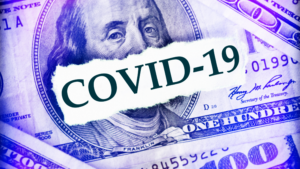Credit During COVID-19, 8 Ways To Protect It
- #1 Regularly check your report.
- # 2 If possible, pay all your bills on time.
- # 3 Dispute information online.
- #4 Be extra careful about your identity protection.
- #5 Ask your lenders for assistance.
- #6 Contact your service providers.
- #7 Apply, if possible, for financial assistance.
- #8 Create a budget and arrange ahead.
- More Resources to Help You With Your Credit
- LET’S KEEP IN TOUCH!

Credit during these times of COVID-19, accessing your credit is important. That’s why Equifax, Experian, and TransUnion are now offering free weekly online reports through April 2021.[bctt tweet=”Meaningful, tweetable quote.”]
[maxbutton id=”2″ ]
Here are some steps that you should take now to help keep your credit on a stable foundation.
#1 Regularly check your report.
It is important, particularly now, to make sure your reports are correct. This way, before it affects your credit, you can detect any potentially fraudulent behavior and respond to it. With all three bureaus (Experian, TransUnion, and Equifax), you can verify your reports.
Credit
# 2 If possible, pay all your bills on time.
While we know it can get complicated, try to make at least your minimum debt payments every month by their due date to avoid damaging your score. Do your utmost to make the payments on time, even though you are just meeting the minimum requirements of the creditors.
# 3 Dispute information online.
Understand that for each credit bureau where the information you are disputing occurs, disputes need to be made in writing.
#4 Be extra careful about your identity protection.
During periods of crisis, identity theft and related scams also spike, so protecting your personal details is extremely important now. Most bureaus allow you to put a free security freeze on your credit file if you fear identity fraud can occur or has occurred on your behalf, so lenders can not gain access to it. This prohibits individuals from accessing your personal information and applying on your behalf for credit. The freeze can be removed at any time, free of charge of course.
#5 Ask your lenders for assistance.
If you know at this time that you will not pay all your bills, contact your lenders and inquire as soon as possible about hardship options, preferably before you miss a payment. Many lenders are putting in place policies to support borrowers who may need more time to pay their bills as the COVID-19 pandemic continues.
#6 Contact your service providers.
If you do not think your utility, mobile phone, cable, or other monthly bills can be paid, contact your companies to see if during this period they provide flexible payment options.
#7 Apply, if possible, for financial assistance.
If you believe you will need help handling your current debt, despite the help of creditors, consider working with a licensed credit counselor. Nonprofit advisors will give you advice and even build a debt management plan to assist you in manageably repay your debts.
U.S. market volatility could trigger considerable concern for those with stocks, savings, or retirement accounts. Consult financial experts where you invest or bank, or speak to the 401(k) representative of your business to get professional guidance about what actions, if any, you should take at this moment, before you make any hurried decisions with your assets.
#8 Create a budget and arrange ahead.
If you think your income or investments could be impacted by current circumstances; consider tightening your budget to help ensure that you have enough funds to cover your expenses. It is a sound strategy to make a budget and stick to it at any time; but especially when your finances can take an unplanned hit.
More Resources to Help You With Your Credit
To help you find the resources you need; we have compiled a list of financial and non-financial institutions’ websites providing relief and useful consumer information. Go to COVID-19 (Coronavirus) Credit Card and Debt Relief for more information on credit card and debit relief.
Do you have a question about credit, the home buying process or the home selling process? Complete the form below and I will follow up with you.
